Happy Wednesday! It was the team-up you didn’t know you needed (and probably never wanted). Democratic Sen. John Fetterman of Pennsylvania was spotted dining in Washington, D.C., with Trump consigliere Steve Bannon. We couldn’t for the life of us tell you what they discussed.
Quick Hits: Today’s Top Stories
- Roughly 700 Marines joined the 2,100 National Guard personnel present in the Los Angeles area Tuesday morning, following President Donald Trump’s order for federal forces to protect U.S. government property and personnel from anti-immigration protests and rioting. Neither the Marines nor the guardsmen will have the power to make arrests, as federal troops are barred from fulfilling civilian law enforcement functions by the Posse Comitatus Act of 1878. The total National Guard deployment is expected to grow to 4,000 troops and last for at least 60 days, according to Defense Secretary Pete Hegseth. California Gov. Gavin Newsom, whose state sued the federal government on Monday to block the activation of National Guard troops, said Tuesday that Trump was “behaving like a tyrant, not a President.” Los Angeles Mayor Karen Bass ordered a curfew for parts of the city’s downtown area, from 8 p.m. to 6 a.m. PT, that she said she anticipated being in effect for several days.
- Russian forces on Tuesday launched what Ukrainian President Volodymyr Zelensky described as “one of the largest attacks” on Kyiv since the start of Russia’s full-scale invasion three years ago. The missile and drone strikes began early Tuesday morning and continued for hours, killing at least one person. The St. Sophia Cathedral, a UNESCO World Heritage site, was also reportedly hit in the aerial assault on Ukraine’s capital. Also on Tuesday, Russia attacked the southern Ukrainian port city of Odesa, killing two people and striking a maternity hospital.
- Stephen Hubbard, a U.S. citizen who was captured from his home in Ukraine by Russian forces in 2022, has been located in a Russian prison, the New York Times reported on Tuesday. The 73-year-old retired teacher was accused by Russia of being a mercenary for Ukraine and sentenced to seven years in a penal colony. Following months without contact, he was able to call his family in recent weeks from a prison in the southwestern region of Mordovia. Hubbard is the last remaining U.S. citizen whom the U.S. State Department has designated as “wrongfully detained” by Russia.
- A gunman opened fire at his former high school in Graz, Austria, on Tuesday, killing 10 people before killing himself. The shooter, who police identified as a 21-year-old Austrian man, reportedly used two firearms to carry out the attack. “The shooting rampage at a school in Graz is a national tragedy that has deeply shaken our entire country,” Austrian Chancellor Christian Stocker said of the attack, which appears to be the deadliest in the country’s postwar history.
- The United Kingdom, Canada, New Zealand, Australia, and Norway on Tuesday announced sanctions against two far-right Israeli Cabinet officials—National Security Minister Itamar Ben-Gvir and Finance Minister Bezalel Smotrich—for allegedly inciting violence in the West Bank. “Itamar Ben-Gvir and Bezalel Smotrich have incited extremist violence and serious abuses of Palestinian human rights. These actions are not acceptable,” read a joint statement from the five countries, which are freezing the two men’s assets and banning them from entering their borders. Both ministers have pushed for an aggressive expansion of settlements in the West Bank and called for the resettlement of Gaza.
- The Trump administration is planning to increase the number of illegal immigrants sent to Guantanamo Bay for processing before deportation by thousands, multiple news outlets reported Tuesday. At least 9,000 people are reportedly being vetted for transfer to the U.S. military base located in Cuba, which since February has processed only about 500 migrants for deportation. It is unclear whether the facility, which was not designed for large-scale migrant processing, will be able to safely accommodate the increased numbers.
- The World Bank projected slowed global growth in its Global Economic Prospects report released Tuesday, predicting that global GDP growth would slow to 2.3 percent, down from 2.8 percent last year. In January, it had projected a 2.7 percent growth rate in global GDP, but now says that economic turbulence created by American tariffs will slow economic output. The World Bank also projected that the U.S., which now has the highest effective tariff rate in a century, will have a 1.4 percent growth rate—a decrease of 1.4 percentage points from 2024.
Leave a Voicemail
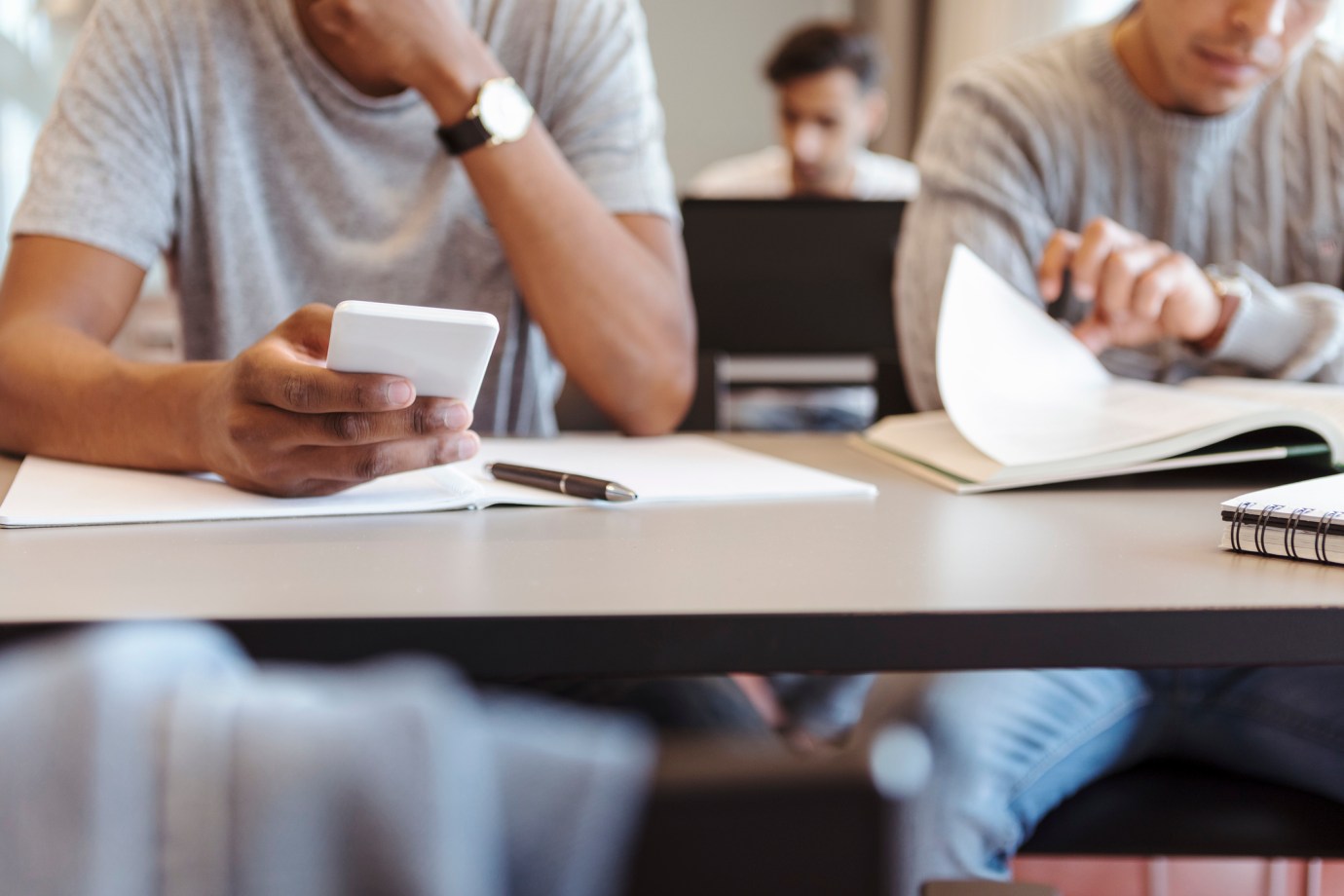
It’s a tough week for kids in D.C. Public Schools. The district announced that, beginning this fall, it will officially bar students from using their phones during the school day, and students … aren’t thrilled. “Anything but improving these lunches,” one user commented on a D.C. Public Schools Instagram post announcing the decision.
But among nonstudents, a bipartisan consensus has grown in support of restricting smartphone use in school. After the COVID-19 pandemic, K-12 schools around the country observed learning losses from which large swaths of students still haven’t recovered. And as educators try to make up for lost time, they’ve come up against a recurring roadblock: smartphones. More than 70 percent of high school teachers say that cellphone distraction is a major problem in the classroom. And it seems most of the country agrees.
More than two-thirds of American adults now support banning phones during class time, and a collection of both red and blue states, including New York, Louisiana, Florida, Virginia, California, have adopted statewide restrictions of varying intensities. More than a decade since teens began using smartphones en masse, school districts are now trying to put the digital genie back in the bottle—at least during school hours.
Classroom phone use wasn’t always seen as negative, though. “Generally, with education and technology, all of the enthusiasm is for ‘more, more, more,’” Frederick M. Hess, the director of education policy studies at the American Enterprise Institute, told TMD. In the 1990s, there was an effort to provide schools with internet access, and later a push for laptops and tablets to be made available to students. “Phones just kind of felt like part of that continuum. So, 10 years ago even,” Hess said, “schools would brag about having kids on their phones.”
As phone use in school became ubiquitous, however, parents, teachers, and administrators started to notice growing problems, especially after the pandemic. “We started to get good data suggesting that phones were really harmful for academic performance, for mental health, for wellbeing, and scholars like Jean Twenge and Jonathan Haidt did remarkably important work bringing that to public consciousness,” Hess said. “So what you saw was the first baby steps into this probably three to four years ago.”
Haidt is a major player in the newfound push to ban phones in schools. In his 2024 book, The Anxious Generation, Haidt made the case that smartphones—and particularly social media—have led to declining mental health and other adverse outcomes among adolescents. Sabine Polak, a co-founder of a nonprofit called the Phone-Free Schools Movement (of which Haidt is a member of the Board of Advisors), told TMD that Haidt’s book coincided with significantly increased conversation around the issue of smartphones in schools. Just over a year after the book’s publication, more than a dozen states have implemented restrictions. The governors of Arkansas, Arizona, and New York all signed bans into law just this year.
The recent uptick in legislation around the issue also coincides with more available data on how phone ownership affects children. Studies over the last several years have shown significant downsides to students having access to phones during school. More than half of public school leaders say that phones hurt academic performance, according to the National Center for Education Statistics. One study showed that teenagers are spending an average of 1.5 hours during the school day on their phones, especially on social media. An older study demonstrated how technology prevented students from staying focused on a single task, showing that even incorporating “technology breaks” into a classroom can negatively impact learning.
“The research on this isn’t ‘gold standard.’ Partly, it’s really hard to study this.” Hess said. “People can certainly raise reasonable questions about causation and some of the ins and outs of the data. But the patterns are painfully clear.”
Reading and math scores for students have noticeably declined since the early 2010s, corresponding to the rise of smartphones and social media.. Anecdotally, educators are overwhelmed by distractions in the classroom and disruptions to learning. And the issues go deeper than just academic performance. As Haidt points out, mental health issues and self-harm have skyrocketed since the advent of social media—the suicide rate for girls aged 10 to 14 rose 131 percent from 2010 to 2019.
More than 75 percent of schools had technically banned phones as of 2021, according to a federal survey. But the survey did not measure enforcement, and phone use is still reportedly extremely high, with as many as 97 percent of students using their phones at some point during the school day. “We kind of had this assumption, like many parents, that schools had policies in place and they were being enforced, and what really happened after COVID was that most schools stopped enforcing the policies and became more relaxed,” Polak said. “It just quickly seemed to spiral out of control.”
Several states have started implementing stricter rules around phone use, but there is debate as to how far these measures should go. New York’s ban, for example, takes a “bell-to-bell” approach, requiring school districts to create a plan to store students’ cellphones for the entire school day. Florida, on the other hand, allows high schoolers to use phones outside of the classroom, and Georgia only extended its ban to elementary and middle school students. Opinions about restrictions vary—while 68 percent of adults want to ban phones in class, that number plummets to 36 percent when asked whether the ban should be in place for the entire school day. Parents against a full-day ban are most concerned about being able to reach their child during the school day, an issue that arises regularly in discussions about cellphone restrictions.
But the biggest challenge with phone bans is enforcement, and states haven’t found a one-size-fits-all solution. Some districts lock students’ phones in pouches, but even that cannot eliminate all technological distractions. A school district in California, for example, found that when it banned phones, students were texting with Google Chat and Google Spaces on their school-assigned Chromebooks. Additionally, it is difficult to get teacher buy-in. “Teachers don’t want to be in the business of confiscating kids’ phones,” Hess said. There are liability issues if a phone is damaged or stolen, and if teachers do not feel supported by administrators in enforcement, they may be reluctant to take students’ devices.
Time will tell whether the bans are effective enough to boost students’ learning and mental health. In the U.K., a study found that phone bans had little effect on academic performance, but it will be some time before the results of recent bans in the U.S. are felt. “There’s certainly a lot of really positive anecdotal evidence,” Hess said. “But one of the challenges with so many education interventions is drawing a straight line to effects on academic outcomes.” Teachers at one Florida school that implemented bans in 2023 said students were more engaged during class. But anecdotes will only tell us so much before a scientifically valid study is conducted. “It will probably be a few more years until you start to see anything that would feel like valid and reliable data of the impacts on outcomes,” Hess said.
One of the things that data might reveal is whether addressing phone use at school is effective without changes at home. Restricting cell phones in school can definitionally apply only to school hours, and many of the activities sparking the largest mental health concerns happen after class. “If the school is kind of an island, and as soon as kids are out of school they are still doing six or eight hours of phone time, and you still have the same bullying, and kids are staying up until 1 a.m., and parents aren’t imposing restrictions,” Hess said, “[a phone ban] will help create a distraction-free zone, but there is question about how much it will help as opposed to really changing habits.”
Ultimately, the efficacy of cellphone bans will likely depend on parental buy-in. “This is all obviously much easier when you’ve got communities where the parents are supportive,” Hess said. “As you get downstream to districts and states that were slower to do it, if you have a lot of parents who aren’t on board … you could see these bans being more effective in the places that have adopted them first.”
Today’s Must-Read

Centrist Democrats Take Progressives to the Woodshed
Toeing the Company Line
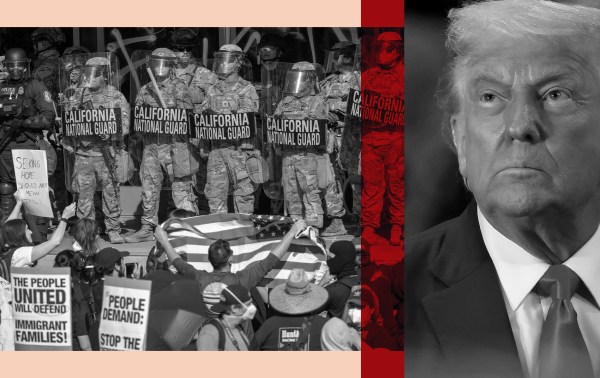
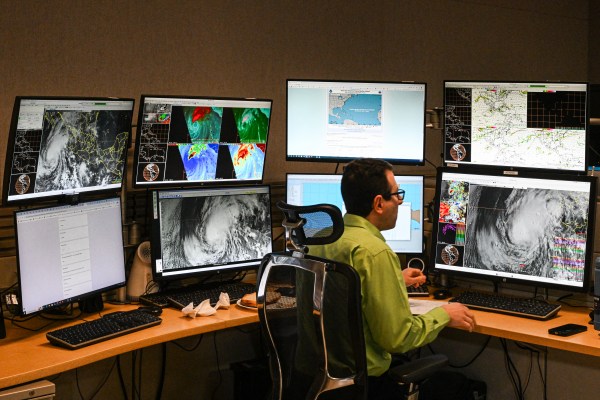
DOGE Cuts at NOAA, Explained

This Won’t End Well

Punching Hippies
Worth Your Time
- In The Atlantic, historian Greg Grandin unpacked the history of birthright citizenship. It turns out that it’s not simply a quirk of U.S. history; it’s a practice that spans nearly all of the Americas, deeply linked with the Western Hemisphere’s status as an “asylum” for humanity. “The idea of childbirth as an emancipatory act was Spanish America’s unique contribution to the transatlantic antislavery movement. Argentina followed with a similar law in 1813, then Colombia in 1814, Venezuela and Peru in 1821, and Ecuador and Uruguay in 1825. Different nations ended slavery at different times, depending on local politics. … ‘No one is born a slave,’ Mexican abolitionists said. They are born citizens,” he wrote. “The United States eventually caught up with Latin America. In 1865, the Union Army defeated the Confederacy with the help of about 180,000 Black soldiers. Their rights could no longer be denied. The first sentence of the Fourteenth Amendment, ratified three years later, finally granted citizenship to free people of African descent: ‘All persons born or naturalized in the United States, and subject to the jurisdiction thereof, are citizens of the United States and of the State wherein they reside.’”
- Could the tactics Ukraine used to lay waste to Russian airfields this month be adopted by China to threaten the U.S.? For War on the Rocks, James Kraska and Gavin Logan argued Washington must be prepared for just such a scenario. “Imagine if something like this happened to the United States. We know, for example, that China possesses adapted civilian shipping containers that can house various missiles. They could enter any port on civilian commercial ships,” they wrote. “What if a war with China breaks out by hundreds of these missiles taking out the bulk of the U.S. fleet in American ports on the east and west coasts as well as in Hawaii, all launched from ships operated by COSCO, a Chinese civilian shipping company with known ties to the People’s Liberation Army? What if we were to tell you that their ships already routinely dock within just a few miles from U.S. naval installations? The homeland security threat is real, and the same risks extend to any American military campaign in the Indo-Pacific, where the majority of container ships operate. If the United States is to defend Taiwan or treaty allies like Japan or Korea, the threat of container missiles on board ships poses a new and vexing maritime threat.”
Presented Without Comment
San Francisco Chronicle: ‘Wildly Underprepared’: National Guard Troops Seen Sleeping on Floors in Exclusive Photos
Also Presented Without Comment
Associated Press: Leaders of ‘Orgasmic Meditation’ Women’s Wellness Company OneTaste Convicted in Forced Labor Trial
In the Zeitgeist
Funk legend Sly Stone died Monday at the age of 82. He and his band, The Family Stone, helped redefine rock, R&B, funk, and dance music for generations of Americans. Here’s our personal favorite from his extensive discography, “Everyday People.”
Let Us Know
Would you support cellphone bans in K-12 schools?






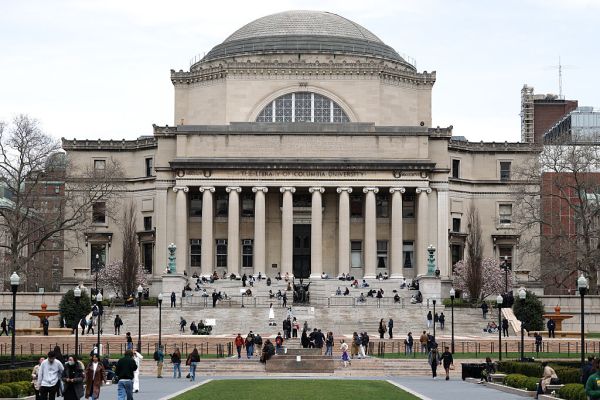

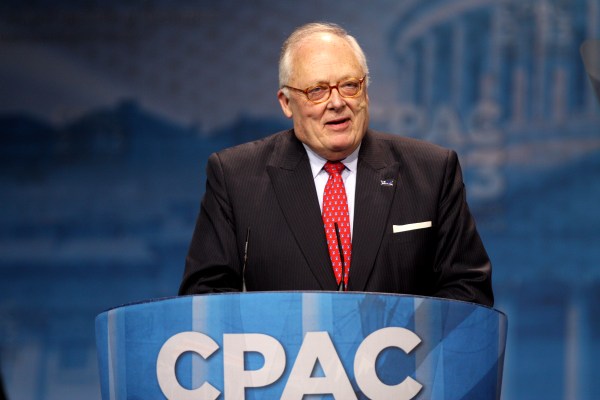


Please note that we at The Dispatch hold ourselves, our work, and our commenters to a higher standard than other places on the internet. We welcome comments that foster genuine debate or discussion—including comments critical of us or our work—but responses that include ad hominem attacks on fellow Dispatch members or are intended to stoke fear and anger may be moderated.
With your membership, you only have the ability to comment on The Morning Dispatch articles. Consider upgrading to join the conversation everywhere.